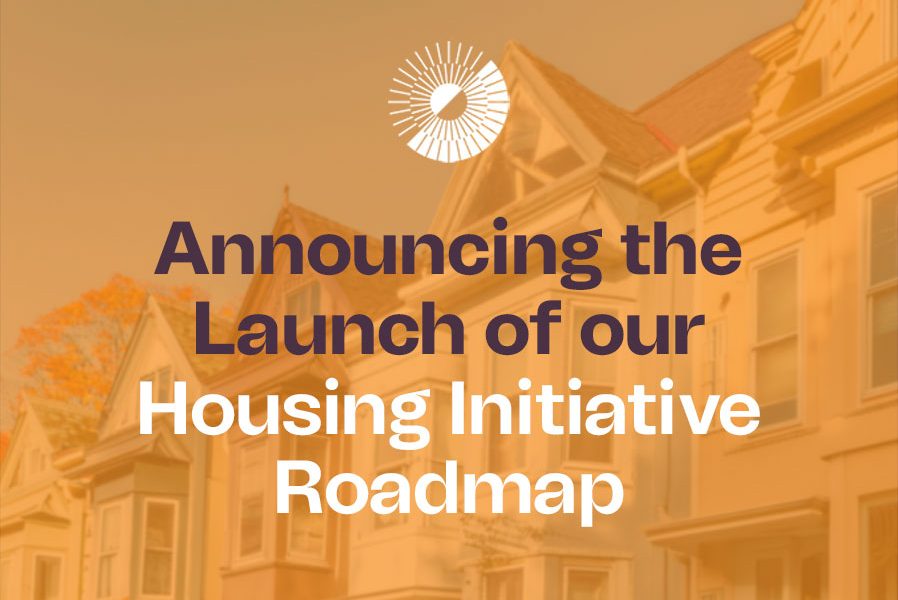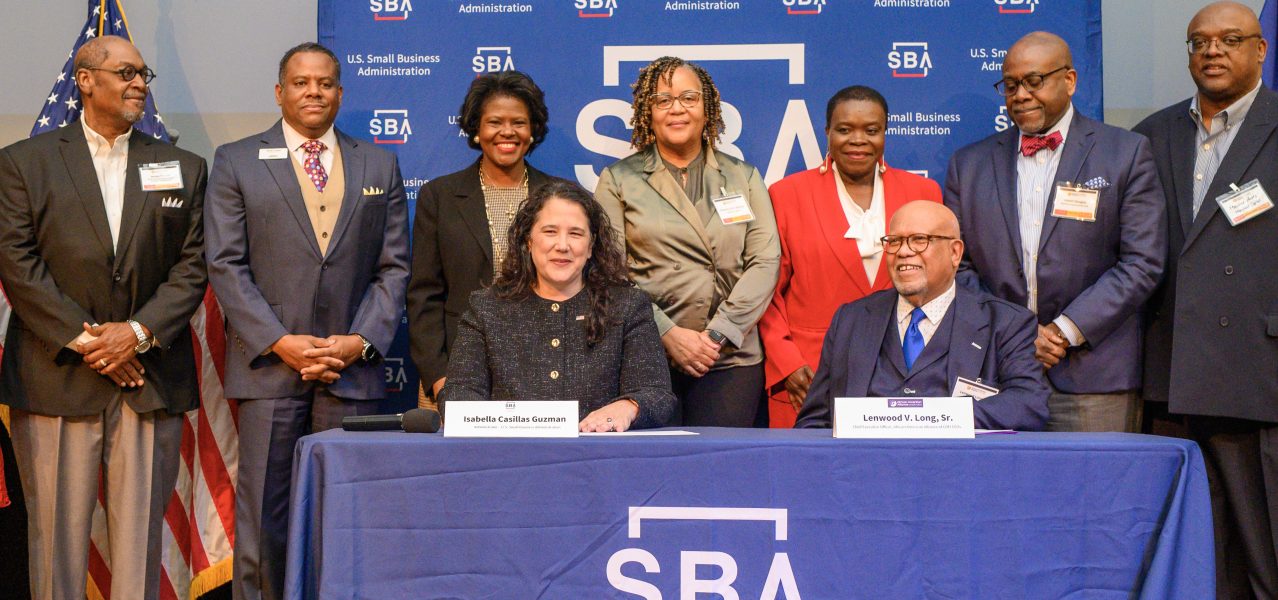In the News Next City: Equity Impact Scorecard Helps CDFIs Address the Racial Wealth Gap



Roadmap Aims to Address Housing Justice for BIPOC Communities
ORLANDO, FL – In recognition of National Homeownership Month, the African American Alliance of CDFI CEOs (The Alliance) unveils its pioneering Housing Initiative Roadmap, aimed at empowering BIPOC (Black, Indigenous, and People of Color) communities in their pursuit of housing justice. Developed with support from the Melville Charitable Trust (The Trust) and in collaboration with Cappelli Consulting, this comprehensive roadmap marks a significant milestone in our commitment to eradicate policies that perpetuate racial housing instability.
The Housing Initiative Roadmap embodies The Alliance’s unwavering dedication to dismantling systemic barriers and fostering equitable, and inclusive housing opportunities. By providing Alliance members with comprehensive access to essential resources, tools, and strategies, we are catalyzing transformative change and advancing social equity in the housing sector.
“Housing justice is fundamental to achieving true equity and inclusion,” said Lenwood V. Long, Sr., CEO of The Alliance. “Our Housing Initiative Roadmap is a testament to our collective determination to address the disparities facing BIPOC communities and ensure that every individual has access to safe, affordable, and dignified housing.”
“The state of housing for Black America has been challenging. To help communities of color build generational wealth and repair the harms of structural racism, we must focus on housing stability. As community development financial institutions (CDFIs) we can play an important role in leveling the playing field,” said Donna Gambrell, Alliance Board Chair and President & CEO of Appalachian Community Capital.
The Alliance Housing Initiative aims to overcome housing justice obstacles and change the narrative on housing in BIPOC communities. The goals of the Housing Initiative Roadmap include empowering members to advocate for anti-racist housing policy reform at the federal, state, and local levels, encouraging members to adopt best practices that increase housing opportunity and improve housing stability in Black and brown communities, and strengthening the capacity of members to develop, deliver, and evaluate effective anti-racist housing programs.
“We cannot end homelessness without major investments in housing. This roadmap outlines key strategies to strengthen Black-led CDFIs and to accelerate the critical investments in advocacy and capacity needed to build a more equitable housing system,” said Alyia Gaskins, Senior Program Officer at the Melville Charitable Trust.
“We cannot close the racial wealth gap and address the inequities without major interventions in the housing development system. To this end, we must strongly advocate for a housing system that centers the needs of BIPOC communities,” said Marshall Crawford, Alliance Board Member and President and CEO of The Housing Fund. “This roadmap is just the beginning of The Alliance and our partners efforts to create a more just housing system.”
“Black-led CDFI’s are some of the most essential institutions driving resources and solutions to struggling communities most affected by disinvestment and economic exploitation across the country in both urban and rural America. Our organizations, however, are affected by many of the same policies that drive lack of resources and the wealth gap in the communities we serve. This Roadmap establishes a strategic plan for the Alliance to advocate for and secure the policies and resources members need to help build thriving communities of color nationwide,” said Anthony Simpkins, Alliance member and President and Chief Executive Officer of Neighborhood Housing Services of Chicago, Inc.
As we embark on this journey, The Alliance invites stakeholders, policymakers, and community members to join us in our collective pursuit of housing justice for all. Over the coming months, The Alliance will collaborate with leaders and advocates in the housing industry to deliver impactful housing programs to our members. Together, we can create a future where every individual, regardless of race or background, has access to safe, affordable, and stable housing.
To learn more about the Alliance Housing Initiative Roadmap and get involved in our efforts, visit please visit http://www.aaacdfi.org.
# # #
African American Alliance of CDFI CEOs
The African American Alliance of CDFI CEOs, known as “The Alliance,” is a membership organization consisting of 79 CEOs from Black-led Community Development Financial Institutions (CDFIs). These institutions include loan funds, credit unions, venture capital firms, and non-profit developers. Since its establishment in 2018, The Alliance’s extensive network has provided services across all 50 states and the District of Columbia. To learn more about The Alliance and its programs, please visit http://www.aaacdfi.org.
Media Contact:
Alisha Brown / African American Alliance of CDFI CEOs
[email protected] / 901-849-0820

The recent decision by the 11th Circuit Courts to reverse the lower court’s ruling and block the Fearless Fund from issuing grants to Black women entrepreneurs is not just a legal setback – it is an outrage and a direct assault on economic justice and the fight against persistent racial and gender inequities in America.
Black entrepreneurs, especially Black women entrepreneurs, are the backbone of innovation and resilience in our economy. Yet, they continue to face barriers that limit their potential. In 2022, women-founded companies received a pitiful 1.9 percent of venture capital (VC) funds, and an abysmal 0.1 percent went to founders of color, according to McKinsey & Company. Programs like the Fearless Fund’s grant contest represent hope and opportunity for these entrepreneurs who have historically been denied access to the capital and resources needed to thrive in today’s business environment.
The group behind this attack on the Fearless Fund, has revealed its true motives: a desire to maintain inequality and crush the dreams of those daring to reach beyond imposed barriers. This court decision highlights a growing hostility towards Diversity, Equity, and Inclusion (DEI) initiatives.
We stand firmly with the Fearless Fund. We support Fearless Fund’s legal battle and will continue to champion the rights of Black entrepreneurs. DEI is not a trend, but a fundamental necessity for a just and equitable society. As Dr. Martin Luther King Jr. said, ‘Our lives begin to end the day we become silent about things that matter.’ We cannot be silent, as too much is at stake in the fight for equality and economic justice.
We hope that when this case is finally resolved, our justice system will rule on the side of equity, reaffirming the principles of fairness and inclusion. This fight is far from over, and we remain steadfast in our commitment to justice.
Be Steadfast!
Lenwood V. Long, Sr, Chief Executive Officer – African American Alliance of CDFI CEOs

When the U.S. Supreme Court effectively outlawed affirmative action in college admissions, colleges and universities felt the pressure to end race-based scholarships programs, and roll back diversity, equity, and inclusion (DEI) initiatives. Recent events have highlighted a stark reality: the fight for DEI is far from over. In fact, it’s under attack.
The decision by Duke University to end scholarships for Black students and the University of North Carolina (UNC) at Chapel Hill Board of Trustees’ shortsighted move to cut DEI funding are not just isolated incidents—they are symptomatic of a larger, systemic problem. These actions threaten to roll back the progress we’ve made, undermine the principles of equality and justice, and perpetuate generations of injustice.
But in the face of adversity, we must stand firm and resolute. Now, is the time to double down on our commitment to DEI initiatives. We cannot afford to be complacent or passive observers in this struggle. We must be vocal advocates, tireless allies, and unwavering champions for change. We must educate ourselves on the history of DEI and fight for a better future. Our first research report, Navigating the Terrain for Diversity, Equity, and Inclusion presents practical recommendations for implementing effective strategies amidst the contemporary challenges posed by those who seek to undermine decades of progress.
DEI is not a buzzword or a box to check—it’s the moral imperative of our time. DEI is crucial for fostering a fair and just society and creating a world where everyone, regardless of their race, ethnicity, gender, sexual orientation, or socioeconomic background, has equal opportunities to thrive and succeed. It’s about building a community where diversity is celebrated, equity is the norm, and inclusion is non-negotiable.
Considering historical inequities and ongoing challenges to DEI initiatives, there is a critical need to mobilize collective efforts to cultivate inclusive environments and advance diversity and equity. As members, friends, and allies of The African American Alliance of CDFI CEOs, we have a responsibility—to ourselves, to each other, and to future generations—to uphold these values and fight for a better tomorrow. We must use our collective voice and influence to demand accountability, challenge injustice, and drive meaningful change.
Let us not be discouraged by setbacks or deterred by obstacles. Instead, let us be inspired by the courage and resilience of those who have come before us. Let us draw strength from our shared vision of a more just and equitable world. And let us recommit ourselves to the work that lies ahead, knowing that together, we can and will make a difference.
Dr. Martin Luther King Jr.’s voice still reminds us: “Our lives begin to end the day we become silent about the things that matter.”

The Environmental Protection Agency has announced 60 selectees under the Greenhouse Gas Reduction Fund Solar for All grant competition as part of the President’s Investing in America agenda. This initiative aims to deliver solar energy to over 900,000 low-income and disadvantaged households nationwide, shining a light on a brighter, more sustainable future.
Congratulations to two Alliance members and awardees:
Hope Enterprise Corporation (HEC) secured $93,670,000 in funding Arkansas Solar for All and $62,450,000 in funding for Mississippi Solar for All. HEC will utilize a multi-pronged approach to advance affordable and resilient solar energy access for low-income and disadvantaged communities.
Their innovative strategies include:
All strategies are built on the foundation of innovative financing, strategic partnerships, and HEC’s deep experience and expertise in serving disadvantaged communities.
Growth Opportunity Partners (Growth Opps) secured $156,120,000 to lead the Industrial Heartland Solar Coalition. Headquartered in Ohio, this coalition unites 31 communities across eight states, from the Midwest to the Rustbelt.
Led by Growth Opps, the coalition is dedicated to catalyzing a just and clean energy transition in America’s industrial heartland. Here’s what they plan to do:
Congratulations to the Hope Enterprise Corporation and Growth Opportunity Partners team for leading the way in sustainable and equitable energy solutions!

The Alliance to play key role in advancing environmental equity as a sub-awardee
ORLANDO, FL – The African American Alliance of CDFI CEOs (The Alliance) announced today that the Justice Climate Fund (JCF) has been awarded $940M as part of the Environmental Protection Agency’s (EPA) Clean Communities Investment Accelerator (CCIA), for which The Alliance will be a sub-awardee. As a founding member of the JCF representing over 78 Black-led Community Development Financial Institutions (CDFIs), the funds will play a crucial role in advancing The Alliance’s mission to fight for environmental equity and close the racial wealth gap.
“This monumental funding marks a significant milestone. It is a testament to the power of collective action and a clear signal that change is not only possible, but imminent. We congratulate the winners of both the National Clean Investment Fund (NCIF) and the CCIA and look forward to working with them on the important work ahead to ensure our members can access capital for the communities they serve,” said Lenwood V. Long, Sr., CEO at The Alliance and JCF Board Chair.
The JCF was established by the Community Builders of Color Coalition (CBCC), led by The Alliance, which represents a national network of 18 financial institutions and advocacy organizations with leaders of color at the helm. The CBCC launched JCF just last year with the goal of ensuring that historically disadvantaged communities across the United States can equitably benefit from the EPA’s Greenhouse Gas Reduction Fund and help eradicate the disproportionate impact of climate change in low-income communities.
To this day, JCF represents an extensive network of 1,016 CDFIs, encompassing 500 credit unions, 120 community banks, and 177 loan funds and community trade organizations led by African American, Latino, Asian, and Native American individuals. These entities are pivotal in providing essential financial services and support to disadvantaged communities.
“We are honored and humbled to be part of this transformative initiative. As we embark on this journey, our resolve is stronger than ever to leverage these resources for the betterment of our communities, ensuring that every voice is heard, and every dream is within reach,” added Long.
To learn more about the announcement from the EPA, click here.
# # #
About the African American Alliance of CDFI CEOs
The African American Alliance of CDFI CEOs, known as “The Alliance,” is a membership organization consisting of 76 CEOs from Black-led Community Development Financial Institutions (CDFIs). These institutions include loan funds, credit unions, venture capital firms, and non-profit developers. Since its establishment in 2018, The Alliance’s extensive network has provided services across all 50 states and the District of Columbia. To learn more about The Alliance and its programs, please visit http://www.aaacdfi.org.
Media Contact:
Alisha Brown / [email protected] / 901-849-0820

Recent legal developments continue to challenge Diversity, Equity, and Inclusion (DEI) initiatives. A notable example is the case in Texas where the Wisconsin Institute for Law & Liberty (WILL) secured a permanent injunction against the Minority Business Development Agency (MBDA). The lawsuit argued that the MBDA’s programming, which aims to support minority business enterprises, was racially discriminatory as it provided services based on race and ethnicity. This, they claimed, violated the Equal Protection Doctrine. The MBDA, created by the 2021 Infrastructure Act, supports businesses owned by individuals facing racial or ethnic prejudice or cultural bias. However, the court’s ruling emphasized that any racial classification by the government must be narrowly tailored to a compelling interest. This decision could have broader implications, potentially impacting other programs designed to assist socially or economically disadvantaged groups.
We strongly oppose the recent decision declaring MBDA’s programs unconstitutional. These programs are essential for addressing the systemic barriers and historical disadvantages that minority-owned businesses face. This is underscored by the harsh realities that only 29% of Black-owned businesses that apply for loans receive at least some portion of the requested amount, in stark contrast to 60% of white-owned businesses; that the credit denial rate for Black-owned businesses stands at a significantly higher 38%, compared to just 14% for their white-owned counterparts; and that loans granted to Black-owned businesses typically come with interest rates that are, on average, 1.4 percentage points higher than those offered to white-owned businesses.
By providing targeted support and resources to bridge these divides, MBDA’s initiatives foster a more equitable and diverse economic landscape. Stripping away these programs not only undermines our collective efforts towards inclusivity and equal opportunities for all entrepreneurs in underserved communities but also weakens the overall economy by stifling the growth and innovation that diverse businesses bring.
We beseech the Justice Department to appeal this decision. Unfortunately, contrary to the views of some, economic and education opportunities are not equal for people of color in America, underscored by the fact that minority-owned businesses are three times more likely to be denied traditional bank loans than non-minority businesses.


February 1, 2024
U.S. Small Business Administration and the African American Alliance of CDFI CEOs Forge Partnership to Ignite Small Business Growth
Partnership to Empower Small Businesses and Build Bridges Towards Economic Prosperity for Black Communities
ORLANDO, FL – The African American Alliance of CDFI CEOs (The Alliance) and U.S. Small Business Administration (SBA) have announced a strategic partnership aimed at boosting entrepreneurship and supporting sustainable growth for small businesses. This momentous collaboration was celebrated with a signing ceremony on February 1, 2024, at the Hayti Heritage Center, 804 Old Fayetteville St, Durham, NC 27701.
The partnership between The Alliance and SBA is built on a shared mission; helping start, maintain, and expand small businesses. The Alliance, a dynamic network of Black-led Community Development Financial Institutions (CDFIs), aligns with the SBA to build bridges towards economic prosperity for Black communities. The Alliance seeks to augment the capacity of its members, fostering further economic development.
The partnership will focus on an integrated approach to provide Alliance members, and the communities they serve, with access to educational tools, technical assistance, and other essential programs for business expansion and scalability.
Key areas of collaboration:
“We are excited to partner with the SBA in this historic agreement. Together we will harness the strengths and resources of our organizations in our continuing efforts to support small businesses and catalyze economic growth,” said Lenwood V. Long, Sr., President & CEO of the Alliance. “This partnership represents a significant milestone in our ongoing efforts to drive economic empowerment and provide impactful support to our members and the communities they serve, as well as solidifies an even stronger partnership in our work with the SBA. We aim to unlock new opportunities and create a more inclusive ecosystem for small business success.”
“The SBA, under the Biden-Harris Administration, is proud to formalize our strategic alliance with the African American Alliance of CDFI CEOs (The Alliance) as we pursue our shared goals of equitably expanding access to capital, resources, and opportunity for the growing number of Black entrepreneurs,” said Administrator Guzman. “Under President Biden and Vice President Harris, Black business ownership is growing at the fastest pace in 30 years with the percent of entrepreneurial Black households doubling. This strategic alliance between the SBA and The Alliance will help us strengthen those new businesses, as well as the millions of established Black-owned businesses, so they can create jobs, innovate, and power our economy forward.”
The strategic partnership between the SBA and The Alliance is set to ignite a new era of small business support and development. To learn more about The Alliance and its programs, visit https://aaacdfi.org/
###
About The African American Alliance of CDFI CEOs
The African American Alliance of CDFI CEOs (The Alliance) is a coalition of more than 76 CEOs of Black-led Community Development Financial Institutions (CDFIs), comprising loan funds, credit unions, venture capital firms, and non-profit developers. Since 2018, The Alliance’s network collectively services all 50 states and the District of Columbia. As a result, members are uniquely positioned to address issues related to housing and access to capital for African American populations and communities. Learn more about The Alliance and its programs at http://www.aaacdfi.org.
About U.S. Small Business Administration
The U.S. Small Business Administration makes the American dream of business ownership a reality. As the only go-to resource and voice for small businesses backed by the strength of the federal government, the SBA empowers entrepreneurs and small business owners with the resources and support they need to start, grow or expand their businesses, or recover from a declared disaster. It delivers services through an extensive network of SBA field offices and partnerships with public and private organizations. To learn more, visit www.sba.gov.
Media Contact:
Alisha Brown
African American Alliance of CDFI CEOs
[email protected] / 901-849-0820

Grant to Help the Alliance Address Housing Insecurities for Communities of Color
ORLANDO, FL – The African American Alliance of CDFI CEOs (The Alliance) announced today a $100,000 grant from the Melville Charitable Trust (The Trust). The funding will support the Alliance Housing Initiative; a program designed to eradicate racial policies that perpetuate housing instability.
The state of housing for Black America has been challenging. Systemic racism in housing policies has led to displacement and instability in Black neighborhoods, and lower rates of homeownership. The Alliance Housing Initiative aims to address these disparities by creating equitable solutions that increase the percentage of Black and brown homeowners, prevent evictions, and ensure stability for communities that need it most. The Alliance and The Trust share a common interest in mitigating the hardships endured by minority and low-income populations. The grant will support the development of the Alliance’s housing strategy to empower members to advocate for anti-racist housing policy reform at the federal, state, and local levels, and to encourage members to adopt best practices that increase housing opportunity and improve housing stability in Black and brown communities.
“Housing instability, especially in communities of color, remains a pressing issue that demands our attention and action. This grant is not just a financial contribution; it is a symbol of shared commitment towards eradicating systemic inequities within the housing market,” said Lenwood V. Long, Sr., CEO of the Alliance. “By focusing on housing stability, we can help communities build generational wealth and repair the harms of structural racism. We extend our sincere gratitude to the Melville Charitable Trust for supporting this crucial initiative.”
“We believe that safe and stable housing is critical to ending homelessness. The Trust is committed to ensuring that all people have a home by focusing on systems change, policy and advocacy. Through collaborations with organizations like the Alliance we can ensure critical resources reach the communities that need it most,” said Alyia Gaskins, Senior Program Officer at the Melville Charitable Trust. Melville’s contribution brings the Alliance one step closer to creating a racial economic-justice ecosystem where Black-led CDFIs, and the communities they serve, can thrive.
“There is an equity problem in the housing development system. Therefore, we need to strongly advocate for the communities that need affordable housing the most,” said Marshall Crawford, President and CEO of The Housing Fund. “I’m encouraged by collaborations between organizations like The Alliance and the Melville Charitable Trust because they foster a holistic approach to tackling homelessness.”
By addressing inequitable systems and housing instability, The Alliance aims to improve the lives of people in marginalized communities, ensure equitable access to housing and close the racial wealth gap.
To learn more about what’s next for the Alliance, please visit http://www.aaacdfi.org.
# # #
African American Alliance of CDFI CEOs
The African American Alliance of CDFI CEOs, known as “The Alliance,” is a membership organization consisting of 76 CEOs from Black-led Community Development Financial Institutions (CDFIs). These institutions include loan funds, credit unions, venture capital firms, and non-profit developers. Since its establishment in 2018, The Alliance’s extensive network has provided services across all 50 states and the District of Columbia. To learn more about The Alliance and its programs, please visit http://www.aaacdfi.org.
Media Contact:
Alisha Brown / African American Alliance of CDFI CEOs
[email protected] / 901-849-0820